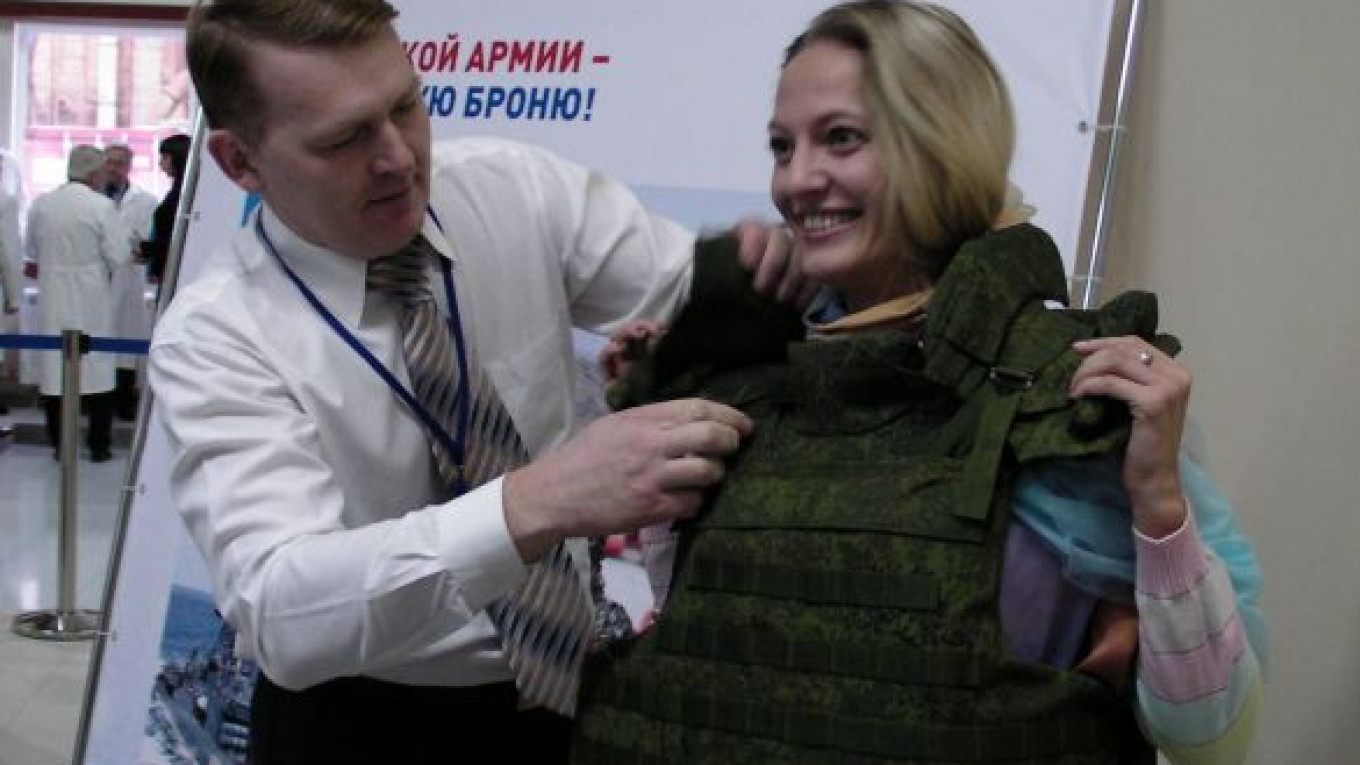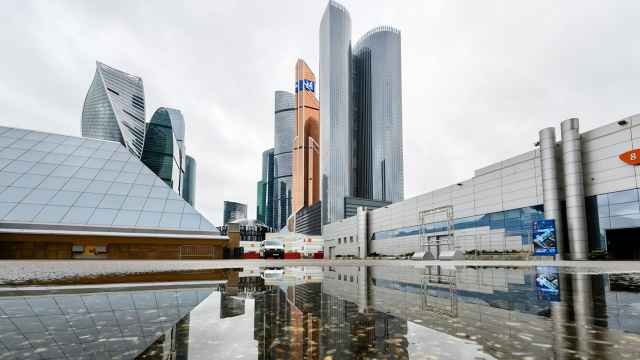NOVOSIBIRSK — A factory producing nanostructured ceramics for orthopedics and dental implants, bulletproof armor and circuit boards opened its doors in Novosibirsk on Thursday as a part of the government's effort to breathe life into domestic manufacturing facilities.
Rusnano chief Anatoly Chubais and Novosibirsk region governor Vasily Urchenko officially switched on the production lines in NEVZ-Ceramics, a 1.5 billion ruble ($45.9 million) joint venture between Rusnano and a 72-year old Siberian electronics and ceramics factory, NEVZ-Soyuz.
Rusnano has invested 790 million rubles ($24.2 million), with the rest coming from private investors and the federal government, including $4.7 million from the Education and Science Ministry and $184,000 from the federal Fund of Assistance to Development of Small Enterprises.
German engineering firm BBL Technology Transfer provided technology to optimize the machines that pulverize raw materials into nanoscopic particles and compress them with other nano additives to reduce porousness and increase strength, resulting in a ceramic material stronger than titanium.
"The factory already had a basic process of ceramics production," said Karl Billau, managing director of BBL Technology Transfer, the only person without a white lab coat in what looked like a black and white futuristic film from the '60s.
"But we made improvements and brought state-of-the-art technology from Germany. This is the only place in Russia that has these machines," Billau added.
Hip joints made from this material, for example, have a life span of 20 years, which is twice as long as conventional titanium replacement hips. It makes a world of difference for elderly people, Chubais said.
The factory will also produce ceramic spinal disks. The Novosibirsk Institute of Traumatology, Orthopedics and Neurosurgery has already performed three successful operations using prototypes.
Catherine Mamontova, head of the Medical TechnoPark in Novosibirsk, said that it's time for a mindset change. People travel overseas for complicated surgeries, while cutting-edge technology is already available in our country, she said.
The strength of this project is that "it is built on a foundation of research conducted by local scientists from Novosibirsk — a region which has and will be a leader in new technologies," said Rusnano managing director Dmitry Lisenkov.
"The task of producing modern complex composite ceramics for the military, electronics and life science is very ambitious," Chubais said. "These technologies are not just world-class, they are a step ahead of world-class."
In 2012, the global market for ceramics reached $57 billion, growing nine percent per year on average, while the domestic market reached $483 million and grew at a rate of 18 percent per year.
It is expected that by 2016 NEVZ-Ceramics' turnover will reach 2.5 billion rubles but to achieve that management needs to put as much effort in sales and winning new customers as they put into setting up the production line in the first place, Chubais said.
Currently Russia imports over 70 percent of its high tech ceramics needs. Steep prices and inflexibility of suppliers have hindered the use of ceramics in industries such as oil chemistry, electronics and medicine, according to a statement from NEVZ-Ceramics.
By 2016, the company expects to replace up to 10 percent of the current import volume with its own products.
Novosibirsk Mayor Vladimir Gorodetsky said that this project is "not a demonstration of future hopes for new technologies, but of a practical adoption of these technologies on Siberian territory."
NEVZ's evolution is in line with Prime Minister Dmitry Medvedev's recently comments about the evolution of the country's industrial base.
In a trip to the Yaroslavl region earlier this week, Medvedev said that employment problems and performance of certain factories have to be considered within "the scale of the whole country," Vesti Reported.
Modernization of existing production lines is critical to win contracts and keep jobs. Russia lags behind developed countries like Germany, where innovative technological processes are deployed at 62 percent of businesses, said Labor and Social Protection Minister Maxim Topilin. In Russia, only 9 percent of enterprises use modern technology, he added.
Contact the author at g.moukine@imedia.ru
A Message from The Moscow Times:
Dear readers,
We are facing unprecedented challenges. Russia's Prosecutor General's Office has designated The Moscow Times as an "undesirable" organization, criminalizing our work and putting our staff at risk of prosecution. This follows our earlier unjust labeling as a "foreign agent."
These actions are direct attempts to silence independent journalism in Russia. The authorities claim our work "discredits the decisions of the Russian leadership." We see things differently: we strive to provide accurate, unbiased reporting on Russia.
We, the journalists of The Moscow Times, refuse to be silenced. But to continue our work, we need your help.
Your support, no matter how small, makes a world of difference. If you can, please support us monthly starting from just $2. It's quick to set up, and every contribution makes a significant impact.
By supporting The Moscow Times, you're defending open, independent journalism in the face of repression. Thank you for standing with us.
Remind me later.






